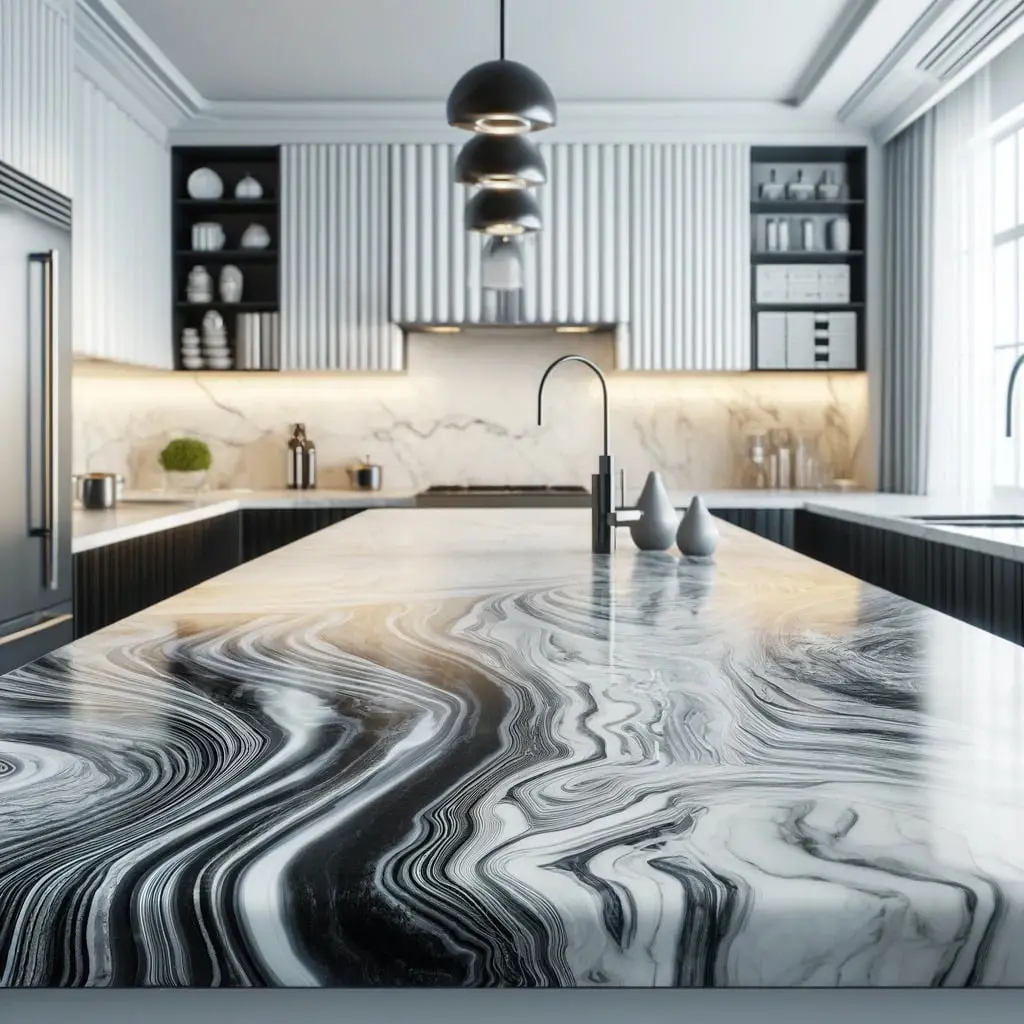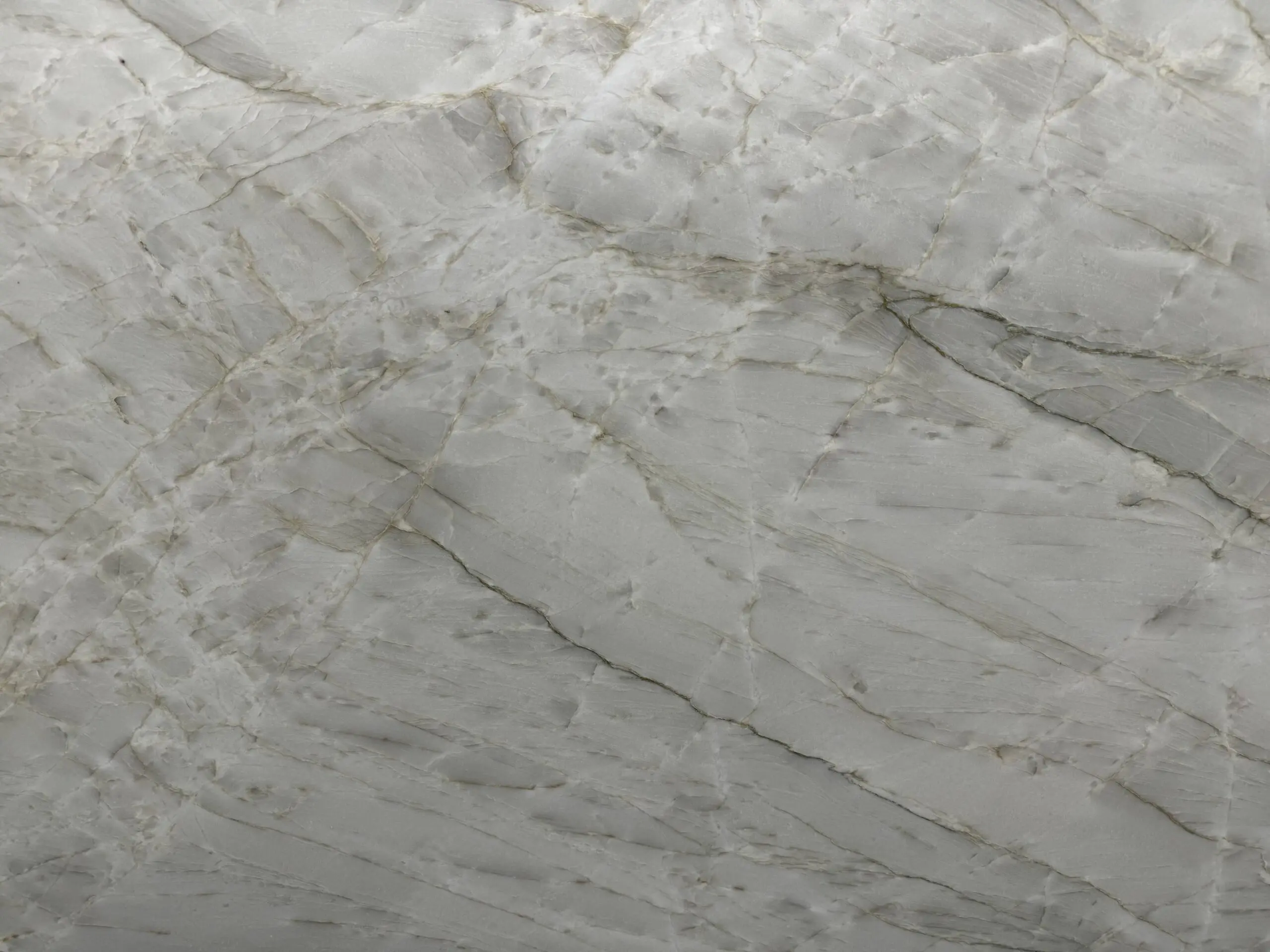When it comes to crafting your dream kitchen, one of the most pivotal choices you’ll face is selecting the perfect countertop material. Among the array of options available, quartz and quartzite emerge as popular choices, celebrated for their durability, aesthetics, and functionality. In this article, we’ll delve into the distinctive characteristics of these materials, evaluating the advantages and drawbacks of each, aiding you in making an informed decision for your kitchen.
Understanding Quartz and Quartzite:
Quartz:
Quartz is a man-made material, comprising roughly 90-93% crushed natural quartz crystals combined with resins, polymers, and pigments. This engineered stone offers a vast spectrum of colors and patterns, making it a versatile choice for any kitchen decor. Quartz countertops are renowned for their durability, resistance to stains, and ease of maintenance. Unlike natural stones, quartz surfaces are non-porous, rendering them highly resistant to bacteria and moisture, making them an excellent choice for kitchens. The more lifelike the patterns, the more valuable the quartz slabs become. Some are handcrafted, like the Antolini line, while others are CNC-made, like Cambria and Silestone. Each manufacturer provides a variety of options to choose from.
Quartzite:
Quartzite, conversely, is a natural stone formed from sandstone subjected to immense heat and pressure deep within the earth’s crust. Through this natural process, the sand grains are fused together, resulting in an incredibly hard and durable stone. Quartzite countertops feature distinctive veining patterns and a natural luster, bestowing your kitchen with a timeless and elegant appearance. They are heat-resistant and highly impervious to scratches, making them the preferred choice for those seeking both beauty and sturdiness in their countertops.
Pros and Cons of Quartz and Quartzite:
Quartz:
Pros:
- Variety: A wide array of colors and patterns to complement any kitchen style.
- Durability: Highly resistant to stains, scratches, and impacts.
- Low Maintenance: Requires minimal upkeep, no need for sealing.
- Hygienic: Non-porous surface prevents bacterial growth.
Cons:
- Not Heat-Resistant: Susceptible to damage from excessive heat, necessitating trivets or hot pads.
- Color Fading: Prolonged exposure to direct sunlight may cause color fading.
Quartzite:
Pros:
- Natural Beauty: Distinctive veining patterns and natural luster add elegance to your kitchen.
- Durability: Exceptionally hard and resistant to scratches and heat.
- Heat Resistance: Can withstand high temperatures, making it ideal for kitchen use.
- Longevity: With proper care, quartzite countertops can last a lifetime.
Cons:
- Maintenance: Requires periodic sealing to maintain its resistance to stains.
- Limited Color Options: Natural variations mean fewer color choices compared to quartz.
When deciding between quartz and quartzite for your kitchen countertop, the ultimate choice hinges on your personal preferences, lifestyle, and budget. If you value a wide range of colors and minimal maintenance, quartz might be the right choice for you. However, if you prefer the natural beauty and longevity of a stone that can withstand heat and scratches, quartzite is an excellent option.
To explore an extensive selection of quartz and quartzite countertops, please visit United Granite Products. Our showrooms offer a diverse range of high-quality materials, allowing you to see, touch, and experience these options firsthand. Visit our website at www.unitedgranitenj.com to learn more about our offerings and find the perfect countertop for your kitchen.
Transform your dream kitchen into reality by selecting the countertop material that aligns with your lifestyle and aesthetic preferences. Visit our showrooms today and let your kitchen reflect your unique style and taste.


